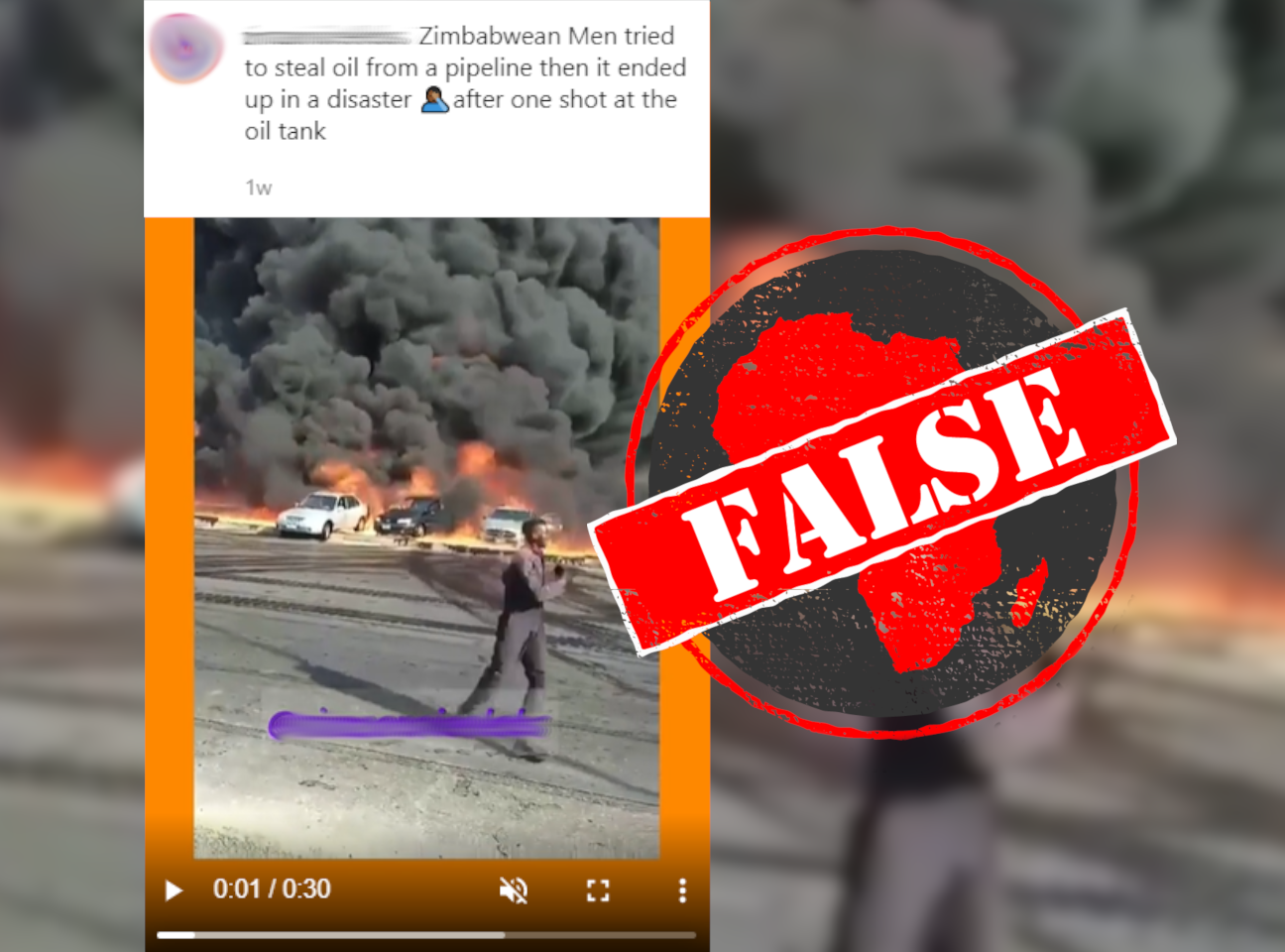A video shared on Instagram in South Africa shows a large cloud of dark smoke above a line of burning cars. People run from the fire, some appearing to drag others away from the flames.
The caption in the Instagram post reads: “Zimbabwean Men tried to steal oil from a pipeline then it ended up in a disaster after one shot at the oil tank.”
The video was posted on 2 November 2021, but no details are given of where or when it was shot. We investigated.

Fire at Egypt's Shuqair-Mostorod crude oil pipeline
We ran a screenshot from the first few seconds of the video through Berify, a reverse image search engine.
This led us to a video on YouTube uploaded by Global News, a Canadian television network, on 14 July 2020. The video is a longer clip of the same footage as in the Instagram post.
But the news network makes no mention of Zimbabwe or Zimbabweans.
The video is captioned: “Cars set ablaze after massive fire breaks out along pipeline in Egypt.”
The description of the video says that a massive fire broke out in Egypt's Shuqair-Mostorod crude oil pipeline and at least 12 people were injured.
A search for “Egypt's Shuqair-Mostorod crude oil pipeline fire” revealed several articles reporting on the incident.
According to Reuters, a witness said around two dozen abandoned cars had been torched.
The video was also published by UK’s Sky News. It doesn’t show “Zimbabwean men” trying to steal oil.
Republish our content for free
For publishers: what to do if your post is rated false
A fact-checker has rated your Facebook or Instagram post as “false”, “altered”, “partly false” or “missing context”. This could have serious consequences. What do you do?
Click on our guide for the steps you should follow.
Publishers guideAfrica Check teams up with Facebook
Africa Check is a partner in Meta's third-party fact-checking programme to help stop the spread of false information on social media.
The content we rate as “false” will be downgraded on Facebook and Instagram. This means fewer people will see it.
You can also help identify false information on Facebook. This guide explains how.


Add new comment